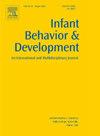婴儿是否期望身体上有能力的代理人获得有争议的资源?
IF 2
3区 心理学
Q3 PSYCHOLOGY, DEVELOPMENTAL
引用次数: 0
摘要
社会等级制度对个人和群体都很重要,但人们对人类思想何时以及如何开始建立社会等级制度仍然知之甚少。过去的研究表明,即使是婴儿也倾向于期望具有某些特征(例如,体型较大)的代理人在二元零和冲突中占上风。基于文献表明,成人和儿童将高地位与有能力而非无能力的个体联系在一起,我们进行了三个预先注册的实验,以测试婴儿是否预测身体上有能力的代理人会在与身体上没有能力的代理人的冲突中获胜。在实验1中,14到15个月大的婴儿观看了一个“有能力”的代理跳过障碍并在舞台上移动,而一个“不称职”的代理没有跳过障碍,因此无法在舞台上移动。与呈现相反结果的情况相比,当不称职的行为者随后获得一个物体时,婴儿看的时间更长,这表明违反了预期。婴儿在实验2a和2b中的反应虽然与实验1中的反应没有显著差异,但这表明这种期望不仅仅是由于代理人的目标实现结果或他们可以跳过障碍的高度的差异。这些发现表明,婴儿期望身体上有能力的人——那些能够通过身体能力达到目标的人——在与缺乏这种能力的人的冲突中占上风。这意味着将高社会地位归因于有能力的人的心理偏见根植于早期发展。本文章由计算机程序翻译,如有差异,请以英文原文为准。
Do infants expect physically competent agents to gain access to contested resources?
Social hierarchy is important for both individuals and groups, but when and how the human mind begins to establish it remains less well understood. Past studies have demonstrated that even infants tend to expect agents with certain characteristics (e.g., a larger body size) to prevail in dyadic zero-sum conflicts. Building on literature suggesting that adults and children associate high status with competent rather than incompetent individuals, we conducted three preregistered experiments to test whether infants predict that a physically competent agent will prevail in conflicts with a physically incompetent agent. In Experiment 1, 14- to 15-month-old infants watched a “competent” agent who jumped over a barrier and moved across a stage, and an “incompetent” agent who failed to jump over the barrier and, as a result, could not move across the stage. Infants looked longer, indicating a violation of expectation, when the incompetent agent subsequently prevailed in obtaining an object compared to when the reverse outcome was presented. Infants’ responses in Experiments 2a and 2b, although not significantly different from those in Experiment 1, suggested that this expectation was not merely due to differences in the agents’ goal achievement outcomes or the heights they could jump over the barriers. These findings suggest that infants expect physically competent agents—those who can achieve goals through physical abilities—to prevail in conflicts with agents who lack such demonstrations. This implies that the psychological bias to attribute high social rank to competent individuals is rooted in early development.
求助全文
通过发布文献求助,成功后即可免费获取论文全文。
去求助
来源期刊

Infant Behavior & Development
PSYCHOLOGY, DEVELOPMENTAL-
CiteScore
4.10
自引率
4.80%
发文量
94
期刊介绍:
Infant Behavior & Development publishes empirical (fundamental and clinical), theoretical, methodological and review papers. Brief reports dealing with behavioral development during infancy (up to 3 years) will also be considered. Papers of an inter- and multidisciplinary nature, for example neuroscience, non-linear dynamics and modelling approaches, are particularly encouraged. Areas covered by the journal include cognitive development, emotional development, perception, perception-action coupling, motor development and socialisation.
 求助内容:
求助内容: 应助结果提醒方式:
应助结果提醒方式:


